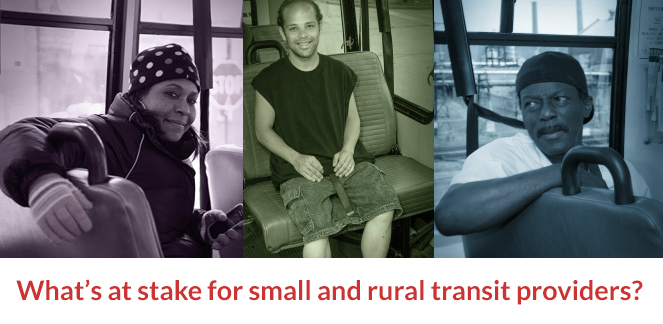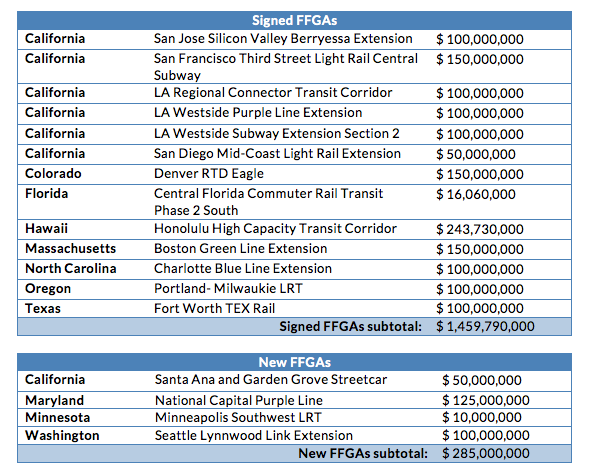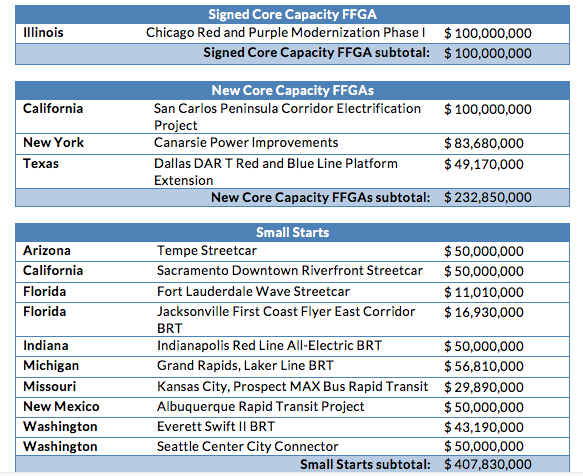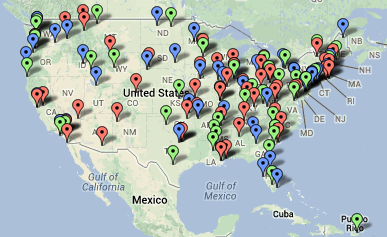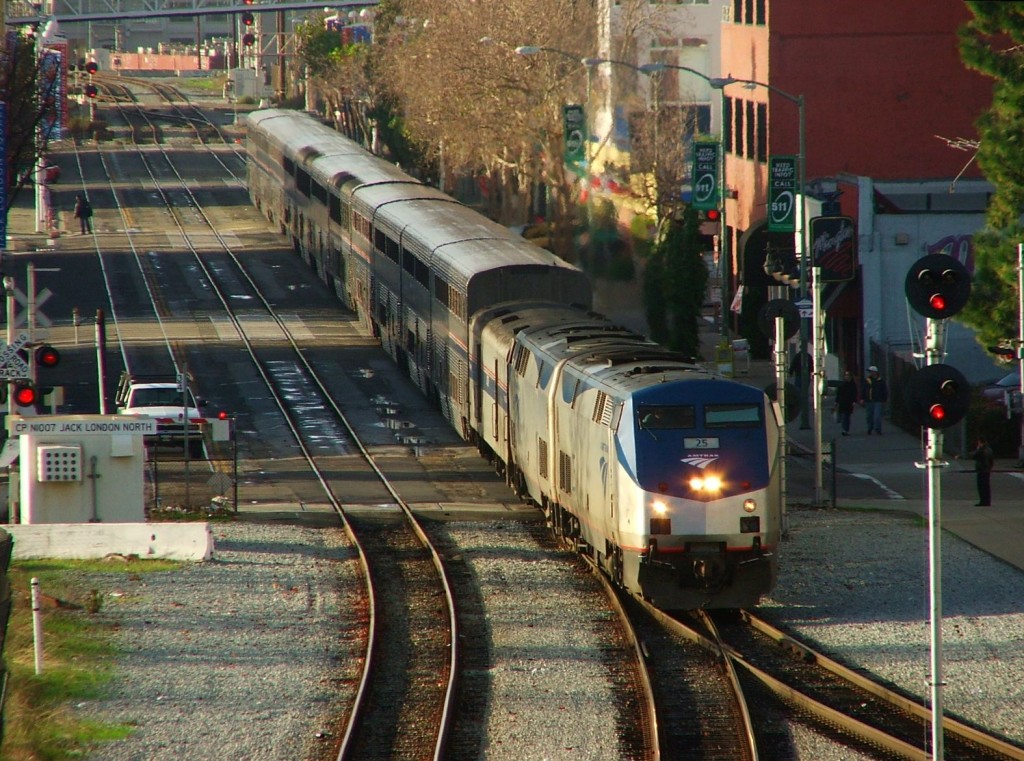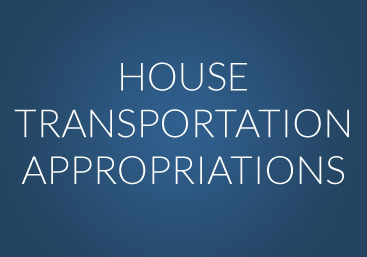Late Tuesday night, the U.S. House of Representatives voted to pass their yearly transportation spending bill with just six votes separating the bill from defeat. While the cuts to TIGER, Amtrak and New Starts transit capital programs were unfortunately approved by the House, it’s unlikely this bill will become law any time soon. That’s because of the Senate’s likely inability to pass any annual spending bills this summer due to the parties’ lack of agreement on overall funding for the government this year.
First, to the thousands of you who sent messages to your representatives in the last week, we thank you for getting engaged on this crucial issue. Though the final vote was disappointing, there’s still hope. We do know that our voices were heard, as many amendments were rejected by significant margins that would have made further cuts to these important programs — reflecting that these legislators are indeed hearing about what their constituents value.
The bad news is that the final bill approved by the House still cut $200 million for all new transit construction, slashed the TIGER competitive grant program by 80 percent, and cut Amtrak’s budget by $240 million. These programs targeted by the House for cuts are precisely the ones that cities, towns and metro regions of all sizes throughout the country are depending on to help them stay economically competitive and bring their ambitious transportation plans to fruition.
The good news is that several short-sighted amendments were roundly defeated, including some to make these above cuts worse.
Rep. Grotham (R-WI) proposed an amendment to make the New Starts cuts even deeper by stripping the bill of all transit capital construction funding ($1.9 billion), which was rejected by voice vote with strong bipartisan opposition. Rep. Emmers (R-MN) proposed an amendment to cut all of the funds used to make transit stations easier to access, boosting ridership and making the service easier and more convenient to use, like projects to improve bike and pedestrian access or support for dense, walkable development near the stops. Transit lines don’t exist in vacuums — successful lines and stations are most often surrounded by other supportive infrastructure that helps connect them to their riders. This amendment was very close, but all House Democrats were joined by 32 of their Republican colleagues to kill the amendment 212-214.
Rep. Brooks (R-AL) proposed two amendments last week to essentially strip all capital and operating funding from Amtrak, and both were defeated by more than 125 votes with strong bipartisan opposition. Rep. Session (R-TX) proposed similar amendments that were both defeated as well. These votes are another reminder of the fact that communities of all kinds — small, large, rural, urban — depend on the service provided by the nation’s passenger rail system. Their constituents certainly don’t see the existence of an affordable transportation option as a partisan issue, to say nothing of the tremendous value provided by making valuable economic connections between metro areas large and small and rural areas throughout the country.
The House’s bill now moves to the Senate Appropriations Committee, where members are currently drafting their Transportation-HUD spending bill. We’re cautiously optimistic that at least a few of the cuts made by the House’s annual spending bill could be undone — at least partially — in the Senate. However, the only way to ensure that all of these cuts are removed and certainly the only way to increase funding over last year’s bill is for Congress to remove the poorly planned and unwise spending caps put in place by the 2011 sequestration.
One thing is certain: we’ll need your help to make that happen, and we will keep you posted as the annual transportation spending bill continues onto the Senate.
Additional insight from our policy team can be found for our logged-in T4America members below, including a full list of amendments that were voted on during Tuesday night’s debate.
[member_content]This information below is pulled from our members-only wrap-up of the vote that went up yesterday. Read the full post here. And visit t4america.org/members regularly to see these updates.
This final vote count is a sign of things to come.
The U.S. House and Senate Republicans are sticking to sequestration-level discretionary funding amounts for all of their FY2016 spending bills, established in the Budget Control Act of 2011. These spending caps limit funding for the regular appropriation bills in FY2016 to $1.016 trillion, a funding increase of just 0.29% over last year. We expect the House to continue to face uphill challenges in passing their bills and over in the Senate, with near, if not all-out, opposition from the Democrats expected for all 12 annual spending bills.
This issue will not likely resolve itself until the fall. Just yesterday, Senate Majority Leader McConnell (R-KY) rejected a call from Senate Democrats to hold a “budget summit” this month to resolve the differences between the two parties on top-line annual appropriations levels. Until this larger issue is resolved, we don’t expect the House Transportation-HUD bill that narrowly passed last night to become law any time soon.
Amendments that were considered Tuesday prior to the bills passage include:
Rep. Denham (R-CA) – An amendment to prohibit funds from the bill to be used for high-speed rail in California or for the California High-Speed Rail Authority. A similar amendment passed last year in the House by a vote of 227-186, but this amendment and others to restrict funding to the California high-speed rail project were not included in the final FY2015 transportation spending bill due to lack of support in the Senate
AMENDMENT ADOPTED BY VOICE VOTE
Rep. Bass (D-CA) – An amendment to make it easier for state and local transportation agencies to use local hire criteria for FTA procurement selection processes. A similar amendment was included in the final FY2015 transportation spending bill, and USDOT is currently implementing this through a one-year pilot. Read our take on that original provision from earlier this year.
AMENDMENT ADOPTED BY VOICE VOTE
Rep Emmer (R-MN) – An amendment to prohibit the use of funds to carry out projects to improve bicycle and pedestrian access on any FTA New Start (transit) projects.
AMENDMENT REJECTED BY VOTE 212-214 (Zero Democrats voted for the amendment — see roll call vote here)
Rep Meehan (R-PA) – An amendment to prohibit Amtrak from spending capital funds on projects other than the Northeast Corridor until Amtrak spends an amount equal to this year’s Northeast Corridor profits on Northeast Corridor capital construction. Amtrak’s profits from that line in FY2015 were $290 million.
AMENDMENT REJECTED BY VOTE 199-227 (see roll call vote here)
Rep Posey #1 (R-FL) – An amendment to prohibit funds from being used to take any actions related to financing a new passenger rail project that runs from Orlando to Miami through Indian River County, Florida. This amendment and Rep. Posey’s other two below were targeted at stopping and/or stalling the development of the private Florida East Coast Railway high-speed rail project.
AMENDMENT REJECTED BY VOTE 163-260 (see roll call vote here)
Rep Posey #2 (R-FL) – An amendment to prohibit funds from being used to authorize exempt facility bonds to finance passenger rail projects that are not reasonably expected to attain a maximum speed in excess of 150 mph.
AMENDMENT REJECTED BY VOTE 148-275 (see roll call vote here)
Rep Posey #3 (R-FL) – An amendment to prohibit funds from being used to make a loan in an amount that exceeds $600 million under the Railroad Rehabilitation and Improvement Financing (RRIF) program.
AMENDMENT REJECTED BY VOTE 134-287 (see roll call vote here)
Rep Sessions #1 (R-TX) – An amendment to prohibit funds from being used by Amtrak to support the route with the highest loss, measured by contributions/(loss) per rider (would eliminate the “Sunset Limited” line from New Orleans to Los Angeles). Rep. Sessions has in the past made amendments similar to this and the following amendment.
AMENDMENT REJECTED BY VOTE 205-218 (see roll call vote here)
Rep Sessions #2 (R-TX) – An amendment to prohibit funds being used by Amtrak to operate any route whose operating costs exceed two times its revenues based on the National Railroad Passenger Corporation FY2014-2018 Five Year Plan from April 2014, targeting nearly all long-distance routes.
AMENDMENT REJECTED BY VOTE 186-237 (see roll call vote here)
Rep Blackburn (R-TN) – An amendment to reduce the overall appropriations for the Transportation-HUD bill by 1%.
AMENDMENT REJECTED BY VOTE 163-259 (see roll call vote here)
Rep Gosar (R-AZ) – An amendment to prohibit funds from being used to implement or enforce the rule entitled “Hazardous Materials for High-Hazard Flammable Trains”.
AMENDMENT REJECTED BY VOTE 136-286 (see roll call vote here)
Rep Lee (D-CA) – An amendment to strike provisions included in the spending bill that would prohibit USDOT from allowing flights or cruise ships to travel to Cuba.
AMENDMENT REJECTED BY VOTE 176-247 (see roll call vote here)
[/member_content]







